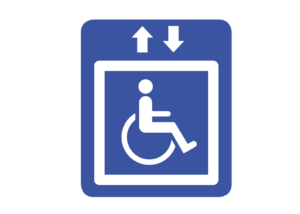Over the course of the last few years, the world has increasingly moved online, creating the perfect environment for the ‘digital nomad’ to flourish. The idea that remote work can allow one to travel limitlessly is tempting to many, and while working abroad has legal ramifications, Spain’s so called ‘Digital Nomad Visa’ provides a route to legally work remotely from Spain. In this article, we will answer your frequently asked questions about the Digital Nomad Visa.
Who can apply for the Digital Nomad Visa?
You may apply for the Digital Nomad Visa if;
- You are of legal age and are neither a Spanish national nor a citizen of the European Union (nor someone to whom the rights of the European Union apply)
- You are not in Spain illegally
- You intend to work remotely for companies located outside of Spain
What type of work does the Digital Nomad Visa allow for?
A person with a Digital Nomad Visa can carry out remote work or professional activities for companies located outside of Spain, through the exclusive use of computer, telematic, and telecommunication means and systems.
In the case of freelance work, the holder of the Digital Nomad Visa may work for a company located in Spain, provided that the percentage of such work does not exceed 20% of his/her total professional activity.
How long does the Digital Nomad Visa last?
The duration of the visa is 1 year, unless the period of work is shorter, in which case the visa will have the same duration as the period of work.
Within 60 days of the visa’s expiry, the visa holder may apply for a residence permit which will last for a maximum of 3 years and can then be renewed for two-year periods provided that the conditions that generated the right to residency are maintained. It is also possible to apply for residency directly from Spain, skipping the visa step, if the applicant is already legally in Spain.
What are the requirements for the Digital Nomad Visa?
- Demonstrable existence of a real and continuous working activity for at least the next one year with the company or group of companies with which the worker has an employment or freelance relationship.
- Documentation accrediting that the work or professional activity can be carried out remotely.
- In the case of an employment relationship, proof must be provided of the existence of that relationship between the worker and the company not located in Spain for at least the last three months prior to the submission of the application, as well as documentation accrediting that said the company allows the worker to carry out the work activity remotely.
- In the case of self-employment, proof must be provided that the worker has had a business relationship with one or more companies not located in Spain for at least the last three months, as well as documentation accrediting the terms and conditions under which the professional activity is going to be carried out remotely.
- Accreditation of being a graduate or postgraduate from a reputable university or business school or having a minimum of three years' professional experience in their current field.
- No criminal record in Spain or in the countries where the applicant has resided during the last two years, for offences established by Spanish law. A criminal record certificate for the last five years will have to be submitted.
- Proof of sufficient financial resources for the applicant and, if applicable, their family members, for the duration of their stay in Spain.
- Proof of public or private insurance coverage with an insurance company authorized to operate in Spain (travel insurance is not accepted)
Can family members obtain a visa?
Yes, the spouse or a person with an equivalent relationship, minor or adult children who economically depend on the main applicant and who have not constituted a family unit on their own, and dependent ascendants who join or accompany the foreigner, may jointly apply for the visa.
What does ‘sufficient financial resources’ mean?
The applicant must have resources of at least 200% of the monthly Spanish national minimum wage. Bank statements, work contracts, or payslips can be used to demonstrate this.
In the case of family members:
- For the first family member (e.g. a spouse or partner) the applicant must prove additional financial means of at least 75% of the Spanish national minimum wage.
- For each additional applicant (e.g. a child), until second grade, 25% of the Spanish national minimum wage is required.
Ask us about the resources you would need to be eligible to apply for a digital nomad visa here:
What about the NIE?
NIE stands for ‘Número de identificación de extranjero (Foreigner identification number)’. It is assigned to all foreigners in Spain in order to identify them administratively before the Spanish State bodies; it does not imply residence or legal stay in Spain. The NIE should be applied for as well in order to be included in the visa application.
Where can one apply for the Digital Nomad Visa?
The visa can be applied for at Diplomatic Missions and Consular Offices.
The residence permit can be applied for through the Unidad de Grandes Empresas y Colectivos Estratégicos.
What is the legal basis for the Digital Nomad Visa?
Ley 28/2022, de 21 de diciembre, de fomento del ecosistema de las empresas emergentes.
Ley 14/2013, de 27 de septiembre, de apoyo a los emprendedores y su internacionalización.
At Conesa Legal we have our own immigration service with lawyers who can provide quality services regarding immigration matters, including supporting you legally throughout your visa and residency applications. Contact our labour lawyer specialized in immigration law here:




